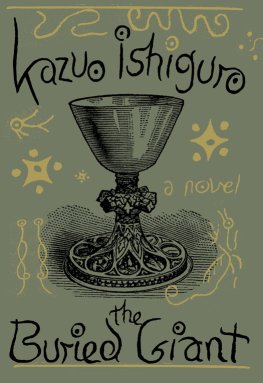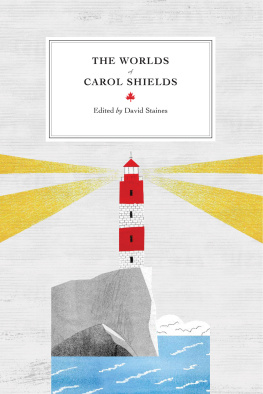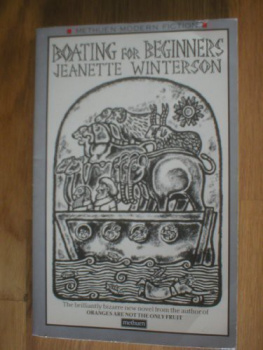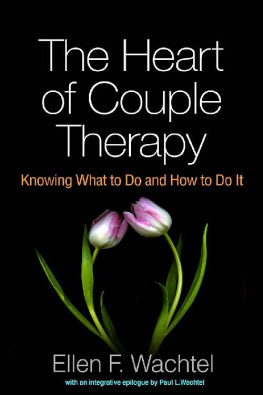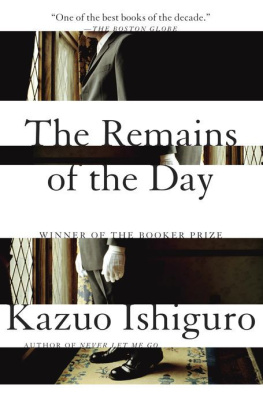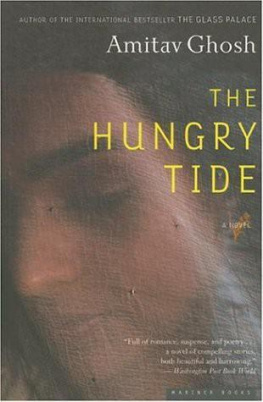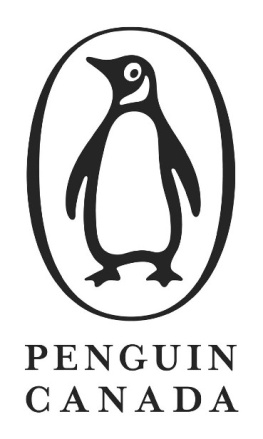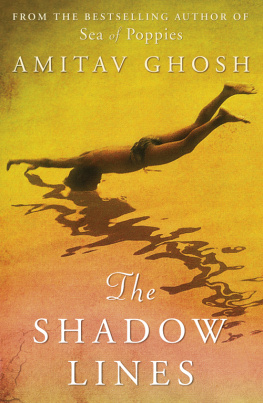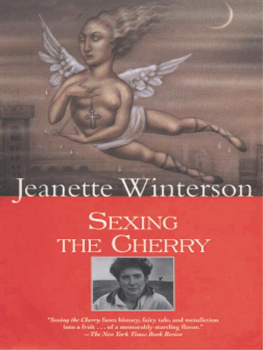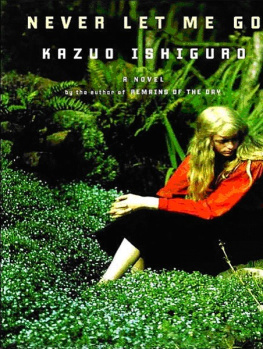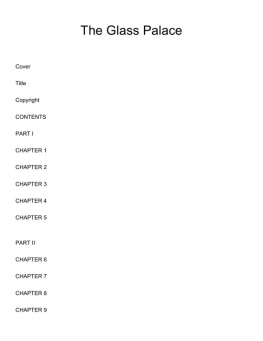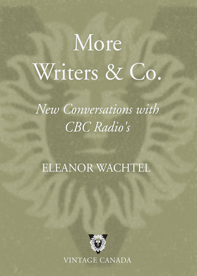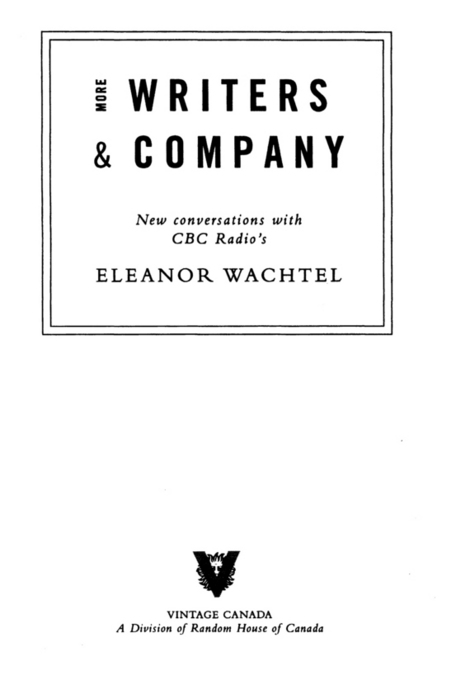First Vintage Canada Edition, 1997
Copyright 1996 by Eleanor Wachtel
Interview with Kazuo Ishiguro 1996 by Kazuo Ishiguro
Interview with Alice Walker 1996 by Alice Walker
All rights reserved under International and Pan American Copyright Conventions. Published by Vintage Canada, a division of Random House of Canada Limited, Toronto, in 1997. First published in hardcover by Alfred A. Knopf Canada, Toronto, in 1996. Distributed by Random House of Canada Limited, Toronto.
Canadian Cataloguing in Publication Data
Wachtel, Eleanor
More writers & company
eISBN: 978-0-307-36616-0
1. Authors, English - 20th century - Interviews.
I. Title. II. Title: More writers and company
PN453.W263 1997 823.91409 C96-931009-9
v3.1
To everyone who cares about CBC radio
Acknowledgments
My first thanks, again, go to Anne Gibson, Executive Producer of Writers & Company, for her commitment and vision; she has been an inspiring presence. Also, my thanks are due to Damiano Pietropaolo, Head of Performance for CBC radio, for his dedicated and enthusiastic support of the program from its inception in the fall of 1990.
Making radio is a collaborative enterprisethe best and most exciting I know. I would like to acknowledge the talent and generosity of the programs producers: Sandra Rabinovitch and Larry Scanlan, who worked with me during most of the period covered in this book. In addition to the producers noted at the end of each interview, I am grateful to the shows current producer, Mary Stinson, for her wholehearted devotion to good radio (and good eating), to associate producer, Nancy McIlveen, for her energetic, cheerful and indispensible good works, and to her predecessor, Lisa Godfrey. Together we have worked with many able technicians in recording and broadcasting the interviews. They are too many to name here, but I do want to single out our former regular studio engineer, Larry Morey. The CBCS London and New York studios provide frequent assistance: Rebecca Penrose and Sue Phillips in London and Linda Perry and Donna Gallers in New York have been exemplary in contacting and welcoming guests.
My colleagues Shelagh Rogers, Susan Feldman, Angelica Fox, Paul Wilson, Michael Crabb, Rei Uyeyama, Kathleen Pemberton, and others on The Arts Tonight team, have throughout these years provided both stimulation and camaraderie. Outside the CBC , I am indebted to the indefatigable Greg Gatenby and his Harbourfront Reading Series and International Festival of Authors for bringing to Toronto so many fine writers. His initiative enhances the experience of living in Toronto. I also want to applaud the enterprise of Eddy Yanofsky and the University of Toronto Bookstore for its lively reading series.
And Id like to thank my good friend Irene McGuire, founder of Writers & Co, the Literary Bookstore, for allowing me to use the name for the show, and hence these books. When she abandoned us and moved to Tasmania, Michael Ondaatje suggested I continue the pattern and entitle this volume, Tasmania.
A number of people have been invaluable in helping to turn the radio interviews into this book. First, of course, the writers themselves who agreed to have their conversations appear between these covers; I feel gratified that no one who was invited refused. The ongoing encouragement of Boris Castel of Queens Quarterly, Linda Spalding and Michael Ondaatje of Brick: A Literary Journal, and Derk Wynand and Lucy Bashford of The Malahat Review has been unstinting; a number of these interviews were first published in their pages. I am grateful for the expansive patience and good humour of my editor, Diane Martin, and the keen interest of Jan Whitford, Louise Dennys and Catherine Yolles. Special thanks go to Hedy Muysson for attentive transcribing, and to the spirited adhoc proofing crew.
The constancy, good will and affection of my family, friends, intimates are as necessary to me as oxygen. To them, I invoke Haruki Murakamis: It seems to me, though, that you always understand very well what I cant say very well.
Finally, for crucial help in the preparation of this bookas with the first onewith editing, keyboarding and faith, my deepest thanks to Gayla Reid.
Since the first volume of Writers & Company was published three years ago, CBC radio has become increasingly and disturbingly vulnerable. To argue for this quintessentially Canadian medium would be superfluous were its continued existence not at risk.
Our many devoted listeners, especially those whove taken the trouble to write, fax, e-mail and phone, bring home to me the importance and vitality of CBC radio. I want to thank you here. You are the key part of this circle.
Contents
Introduction
I grew up in a house without books. But it didnt take me long to grasp the power of reading. I shared a room with my sister at the end of a long hallway; my brothers room was halfway down. On Saturday mornings, my mother would shout down the hall from the kitchen for us to get up, get out, do things. In a minute, wed answer, and turn the page.
Books came from the library or, one year, from a small bookcase at the back of my grade school classroom. In my class, you could write the title on a card and borrow one book at a time; I resolved to fill in both sides of the card. Growing up in 1950s Montreal, my reading was haphazard and I managed to completely bypass all of the childrens classics, such as Alice in Wonderland and Winnie-the-Pooh. The English critic, Sir Frank Kermode, who grew up in the 1920s on the Isle of Man, recently told me about his own stumbling upon Dickens and good books only by accident, and never quite catching references to Eeyore. Exactly.
What I did know was that British books had a different smell than American ones. It must have been the glue or the binding. The children in those English books seemed more autonomous and adventurous, so I came to favour that scent. And although the very first thing I can remember reading on my own was pure descriptionthe squeaking sound of a bear crunching along hard-packed snow (how atavistically Canadian)I read for the stories. I only became aware of an identifiable author and voice a couple of years later when I encountered James Thurber and Edgar Allen Poe, The Night the Bed Fell on Father and A Descent into the Maelstrm. Laughter and fear. Each narrative style was so compelling and so distinctive. I wondered: Who wrote this? Were there other stories like it? I started to recognize names and I began to be curious about how these writers lived and what they thought.
I dont believe that the link between childhood curiosity and adult work is a simple one. But even now, if I had to say what Im after in my conversations with writers, Id find myself coming back to the intersection between the life and the work. And by that, I dont mean the autobiographical sources for the fiction. Im not looking for equivalencies or even clues per se. Its more like trying to catch a glimpse of the writers passion. What fuels the art? What informs the life?
This book is one of the outcomes of that fascination. I discovered long ago that the lives of writers, like any of us, are shaped by relationships with parents, siblings, lovers, children. But what I also found is that the most common thread, the one characteristic recurring most frequently among writers is their self-proclaimed marginality, their outsider status. It is something that most writers prize, even though it may be, or was, a source of pain or loneliness. It gives them license and perspective from which to reflect the world. Paradoxically, it is the writers very marginalization that makes sense of the world for us. When Ive done programs based on geography, interviewing writers from Ireland or Australia, from Africa or Western Europe, its from them that Ive found out about their society. That paradoxthat writers claim their own experience to be marginal and yet are able to conjure the essence of their culture for us in their writingis central to many authors lives.


